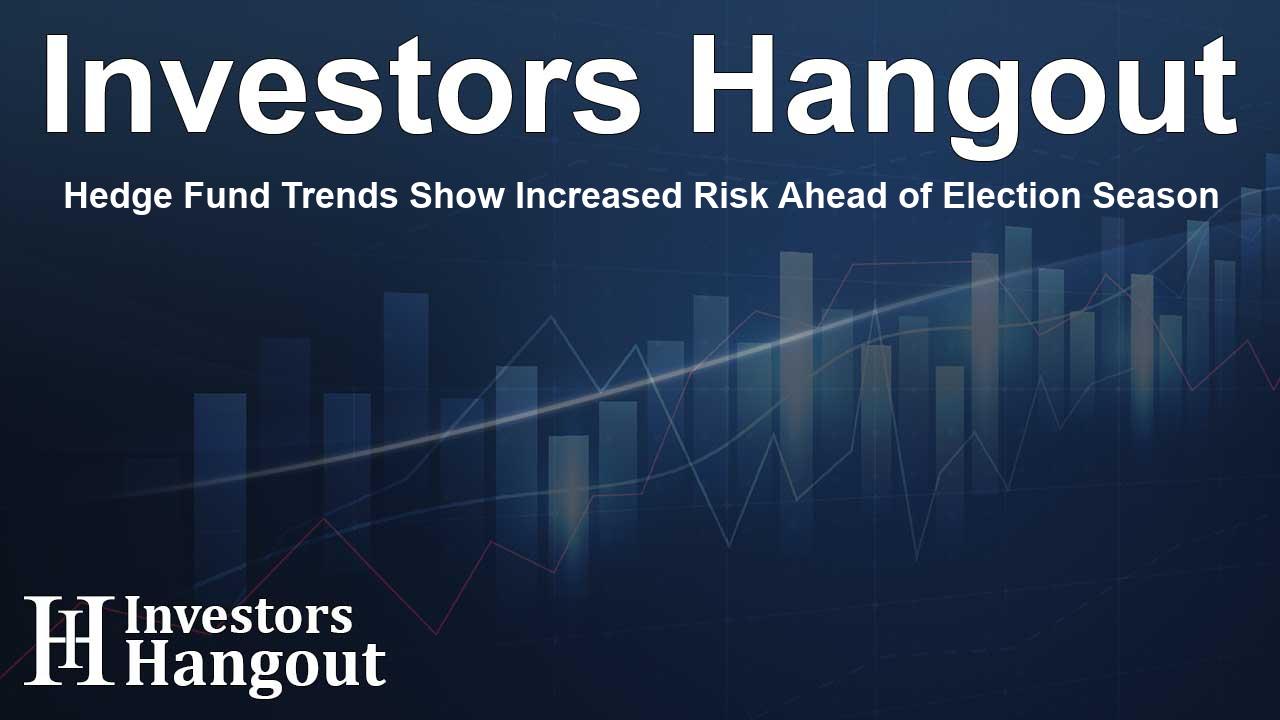Hedge Fund Trends Show Increased Risk Ahead of Election Season

Hedge Fund Strategies and Risk Appetite
Hedge funds are entering the U.S. presidential election period with a notable increase in equity leverage within their portfolios. According to recent data from Goldman Sachs, this trend indicates a heightened risk appetite among these investment firms.
Understanding Leverage in Hedge Funds
Leverage allows portfolio managers to borrow capital from prime brokers to enhance returns. While this strategy can amplify profits, it also increases the potential for significant losses if market trades do not perform as anticipated.
Current Leverage Trends Compared to Past Elections
So far this year, hedge funds have raised their leverage levels by an impressive 20.6%. This contrasts sharply with behaviors observed during the previous three U.S. elections. For example, ahead of the 2020 election, hedge funds reduced their leverage by 3.1%, showcasing a more cautious approach.
Leverage Increases Over the Years
In the 2016 election cycle, where Donald Trump faced off against Hillary Clinton, hedge funds increased their leverage by 12.1%. Similarly, in 2012, when Mitt Romney competed against Barack Obama, there was a more modest increase of 5.6%. These historical trends illustrate how hedge fund strategies shift significantly depending on the political landscape.
Current Market Conditions and Equity Performance
Hedge funds are exhibiting a keen interest in equities, which have shown robust performance throughout the year. The surge in stock prices can be attributed to a strong U.S. economy and increasing optimism surrounding the technology sector.
Benchmark Index Performances
The S&P 500 has experienced remarkable growth, rising over 20% year-to-date, while the Nasdaq index has climbed 22%. Such performances likely contribute to the growing confidence among hedge funds to leverage their investments further.
Goldman Sachs' Insights into Hedge Fund Practices
Goldman Sachs provides insights into hedge funds by evaluating their gross leverage, which considers both long and short positions in equities. This measurement reveals their overall market exposure and informs stakeholders about their risk-taking behaviors.
Barclays' Observations on Hedge Fund Positioning
Furthermore, Barclays has noted that in October, hedge funds have returned to adding equities to their portfolios, reaching a positioning level that is now above average. Despite this increase, Barclays does not view the situation as overly concerning, suggesting that there is still room for further investment.
Macro and long/short hedge funds have predominantly led the charge in increasing equity exposure, indicating a strategic pivot to capitalize on current market conditions.
Conclusion: Future Outlook for Hedge Funds
As the U.S. presidential election approaches, hedge funds are poised to continue adjusting their strategies in response to evolving market conditions and political developments. The increase in leverage reflects a calculated risk-taking approach, driven by market optimism and a positive economic outlook. Stakeholders and investors will be closely monitoring these trends as they unfold in the coming months.
Frequently Asked Questions
What is the significance of increased leverage among hedge funds?
Increased leverage indicates a higher risk appetite among hedge funds, which could lead to greater returns but also higher potential losses.
How does leverage impact hedge fund performance?
Leverage can enhance overall returns when trades are successful but can significantly magnify losses if market conditions turn unfavorable.
What historical trends have been observed in hedge funds' leverage during elections?
Hedge fund leverage trends have shown fluctuations, with periods of reduction before elections contrasted with increases in other cycles.
What are the current market conditions influencing hedge funds?
A strong U.S. economy and robust stock market performance have driven hedge funds to increase their equity exposure significantly.
How do Goldman Sachs and Barclays assess hedge fund strategies?
Goldman Sachs evaluates hedge funds' gross leverage for market exposure, while Barclays analyzes investment trends and positioning compared to historical averages.
About Investors Hangout
Investors Hangout is a leading online stock forum for financial discussion and learning, offering a wide range of free tools and resources. It draws in traders of all levels, who exchange market knowledge, investigate trading tactics, and keep an eye on industry developments in real time. Featuring financial articles, stock message boards, quotes, charts, company profiles, and live news updates. Through cooperative learning and a wealth of informational resources, it helps users from novices creating their first portfolios to experts honing their techniques. Join Investors Hangout today: https://investorshangout.com/
Disclaimer: The content of this article is solely for general informational purposes only; it does not represent legal, financial, or investment advice. Investors Hangout does not offer financial advice; the author is not a licensed financial advisor. Consult a qualified advisor before making any financial or investment decisions based on this article. The author's interpretation of publicly available data shapes the opinions presented here; as a result, they should not be taken as advice to purchase, sell, or hold any securities mentioned or any other investments. The author does not guarantee the accuracy, completeness, or timeliness of any material, providing it "as is." Information and market conditions may change; past performance is not indicative of future outcomes. If any of the material offered here is inaccurate, please contact us for corrections.